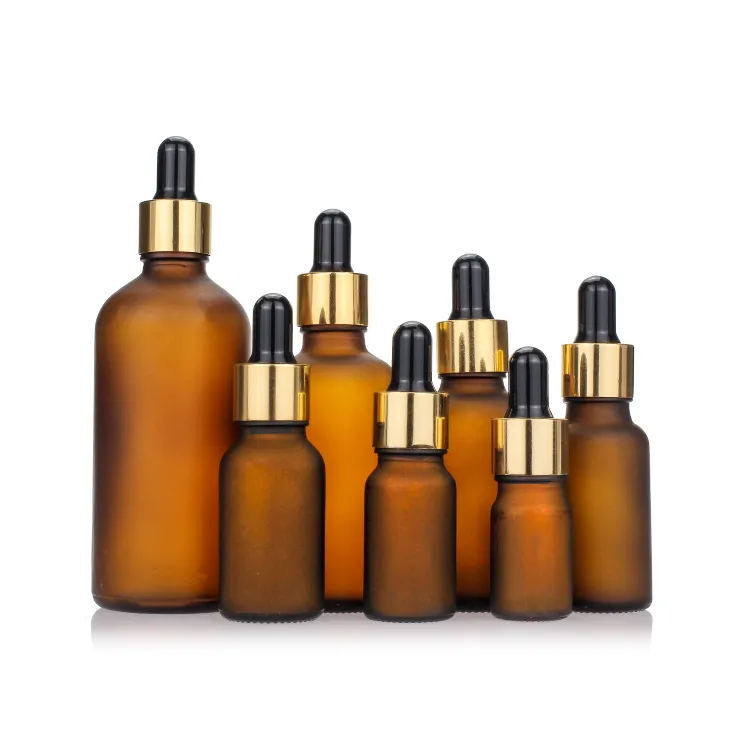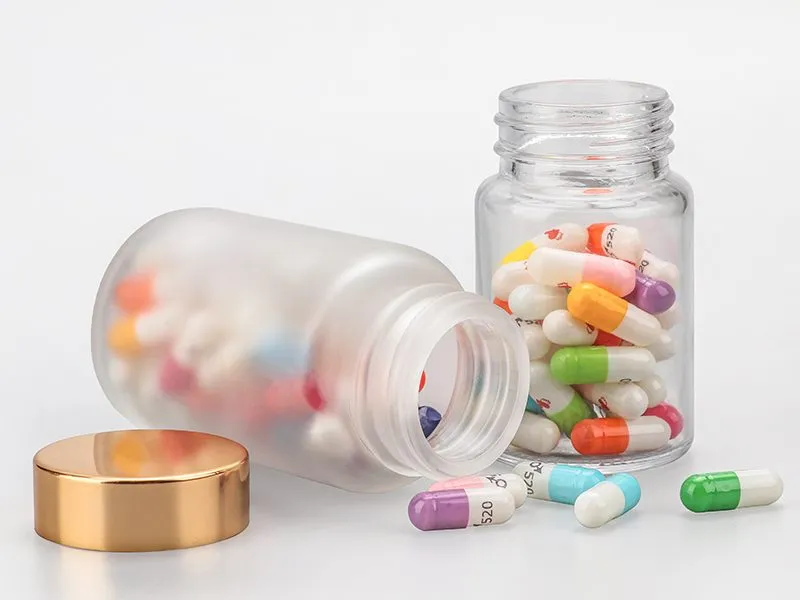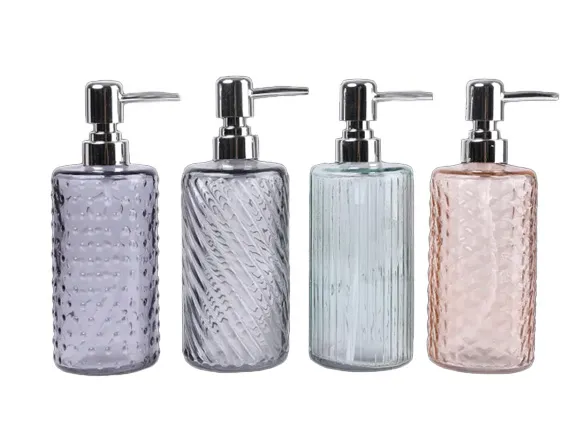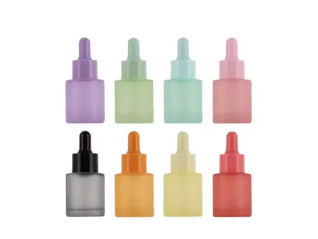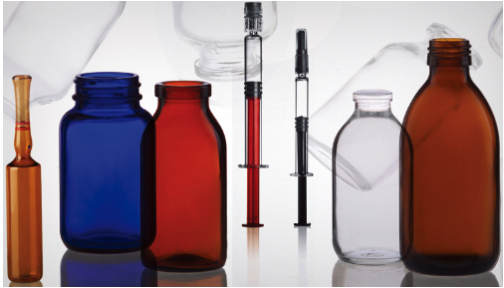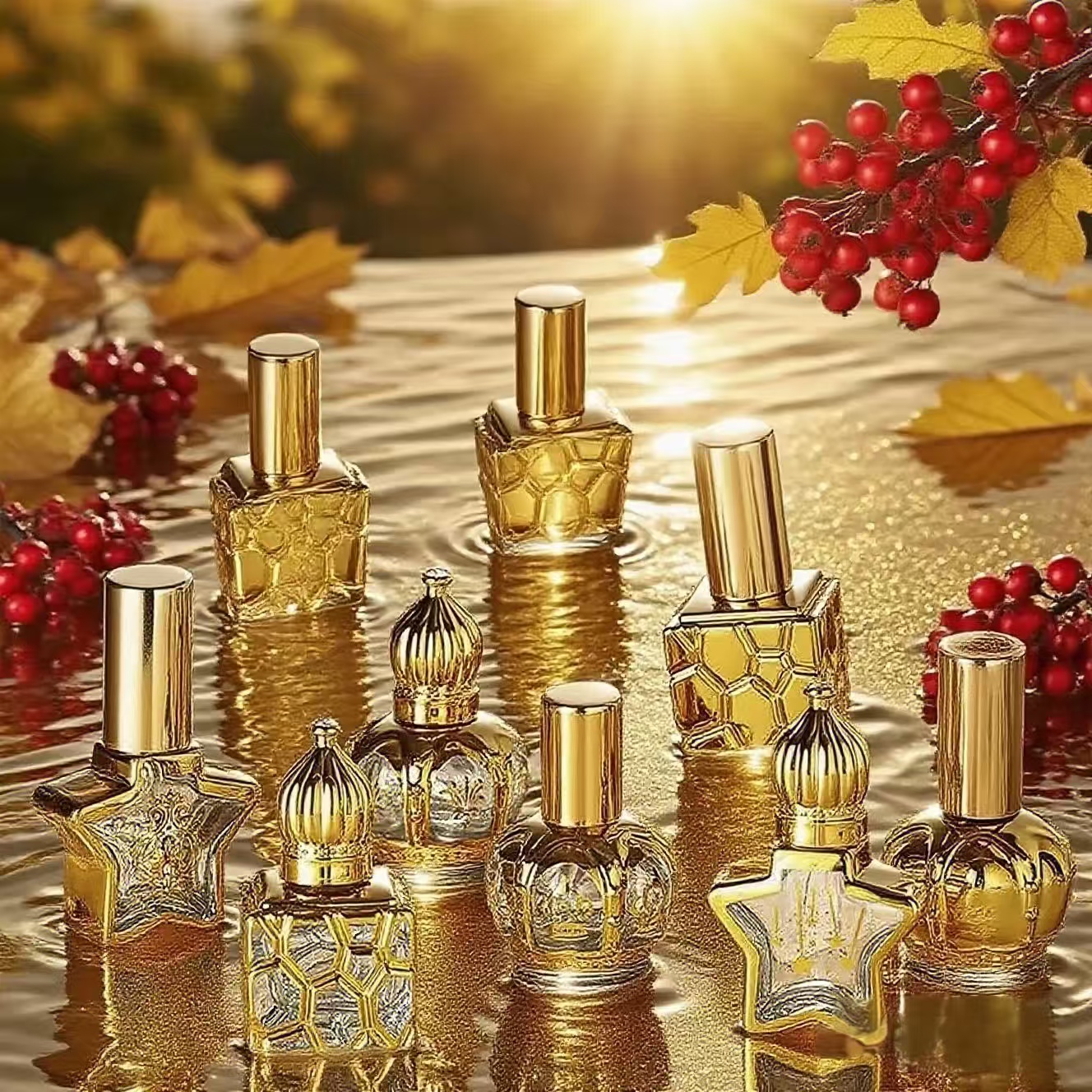Whiskey is one of the most cherished spirits worldwide, celebrated for its rich flavors, complex aromas, and cultural heritage. Whether you're a casual drinker, a serious connoisseur, or a collector, understanding how whiskey behaves once bottled is essential for preserving its quality. A common question arises:Does whiskey go bad in the glass bottle?This article dives deep into the science of whiskey preservation, the role of glass bottles, and how Paupacking’s premiumglass liquor bottlescan help you maintain your whiskey’s integrity over time.
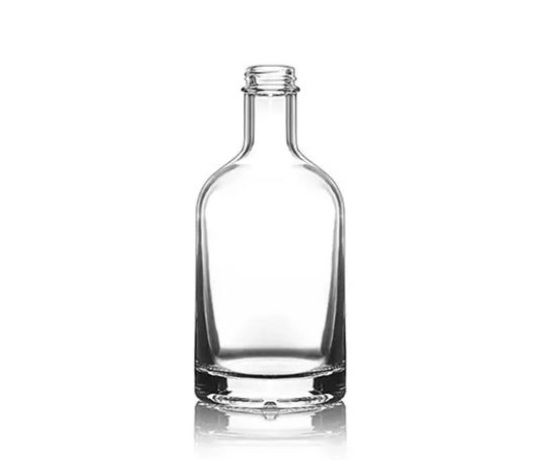

Understanding Whiskey: Composition and Aging
What Is Whiskey?
Whiskey is a distilled alcoholic beverage made from fermented grain mash, including barley, corn, rye, or wheat. It is aged in wooden barrels, typically oak, where it develops its characteristic color, flavor, and aroma. The aging process in barrels is crucial, as it allows the spirit to interact with the wood, absorbing tannins and undergoing chemical reactions that build complexity.
Whiskey’s Aging Process: Barrel vs. Bottle
A fundamental fact often misunderstood is that whiskeydoes not age or improve once bottled. The maturation process occurs exclusively in the barrel. Once the whiskey is transferred into aglass liquor bottle, it essentially reaches its final state. The bottle acts as a container to preserve the spirit, but it does not contribute to further aging or flavor development.
This is a key difference from wines, which can continue to mature in the bottle due to ongoing chemical reactions. Whiskey’s shelf life and quality depend largely on how well it is stored after bottling.
The Chemistry Behind Whiskey Stability
Whiskey typically contains 40% alcohol by volume (ABV) or higher, which acts as a natural preservative. This high alcohol content inhibits microbial growth, meaning whiskey is resistant to spoilage caused by bacteria or fungi. However, whiskey is still subject to chemical changes over time, especially when exposed to oxygen, light, and temperature fluctuations.
The glass bottle plays a critical role in limiting these external factors. Paupacking’sglass liquor bottlesare crafted from high-quality glass that provides an excellent barrier against air and UV light, helping maintain the whiskey’s original profile.


Does Whiskey Go Bad in the Glass Bottle?
Unopened Whiskey Bottles: Shelf Life and Longevity
Unopened whiskey bottles, when stored correctly, can last indefinitely without going bad. The sealed glass bottle combined with a tight cork or cap prevents oxygen from entering, preserving the whiskey’s flavor and aroma.
-
Indefinite Shelf Life:Because the spirit inside is stable and protected, unopened bottles can be stored for decades without deterioration.
-
Collector’s Items:Many rare whiskies increase in value over time as unopened bottles become scarce.
-
Glass Protection:Paupacking’sglass liquor bottlesuse premium glass that prevents light damage and maintains airtight seals, ideal for long-term storage.
Opened Whiskey Bottles: What Changes Occur?
Once a bottle is opened, the whiskey is exposed to oxygen, which initiates oxidation—a chemical reaction that can alter the spirit’s flavor, aroma, and color.
-
Oxidation Effects:Over time, oxygen can break down some of the whiskey’s volatile compounds, leading to flavor flattening or the development of off-notes.
-
Evaporation:Alcohol and water molecules can slowly evaporate, especially if the bottle is not tightly sealed, changing the whiskey’s balance.
-
Shelf Life After Opening:Typically, an opened bottle can maintain quality for 6 months to 2 years, depending on storage conditions and how much whiskey remains in the bottle.
-
Do Peaty or Delicate Whiskies Lose Their Flavor Faster?
The specific style of whiskey can influence how quickly its flavors change after opening. Peaty whiskies—think of the robust, smoky single malts fromIslay—tend to have bold flavor compounds that are particularly sensitive to air exposure. Once the bottle is opened, those smoky, earthy notes may diminish more rapidly than other flavor components, leading to a gradual softening of the signature peat character.
Similarly, delicate whiskies, such as many Japanese expressions prized for their subtlety and nuanced aromas, may also experience noticeable changes if not stored carefully. Their refined, lighter flavors are more susceptible to oxidation, which means they can lose their crispness and complexity faster than richer, more robust styles.
To help preserve both peaty and delicate whiskies, it’s best to minimize air exposure by keeping bottles tightly sealed and stored away from light and temperature swings—guidelines thatPaupacking’s glass liquor bottles are well equipped to support.
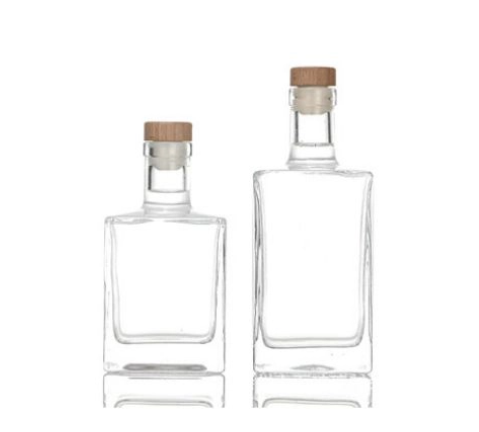

Factors Affecting Whiskey’s Longevity in Glass Bottles
| Factor | Impact on Whiskey Quality |
|---|---|
| Air Exposure | Accelerates oxidation, leading to flavor degradation. |
| Light Exposure | UV rays can break down color and flavor compounds. |
| Temperature Fluctuations | Speeds up chemical reactions, causing flavor changes. |
| Bottle Fill Level | More air space means faster oxidation. |
| Seal Quality | Poor seals allow evaporation and oxygen ingress. |
The Role of the Glass Liquor Bottle in Whiskey Preservation
Why Glass Is the Best Material for Whiskey Bottles
Glass is the preferred packaging material for whiskey for several reasons:
-
Non-reactive:Glass does not interact chemically with whiskey, preserving the original flavor.
-
Impermeable:It prevents air and moisture from entering or escaping.
-
Aesthetic Appeal:Glass bottles showcase the whiskey’s color and enhance presentation.
-
Recyclable and Sustainable:Glass is environmentally friendly and reusable.
Paupacking’sglass liquor bottlesare manufactured using premium glass with superior clarity and strength, ensuring your whiskey is stored in the best possible container.
Design Features That Protect Whiskey
-
Tinted or Dark Glass:Some bottles use amber or green glass to block harmful UV light.
-
Airtight Caps and Corks:Paupacking’s bottles feature high-quality sealing systems to minimize air ingress.
-
Thick Glass Walls:Provide insulation against temperature fluctuations.
-
Customizable Sizes:Smaller bottles reduce air space after opening, slowing oxidation.
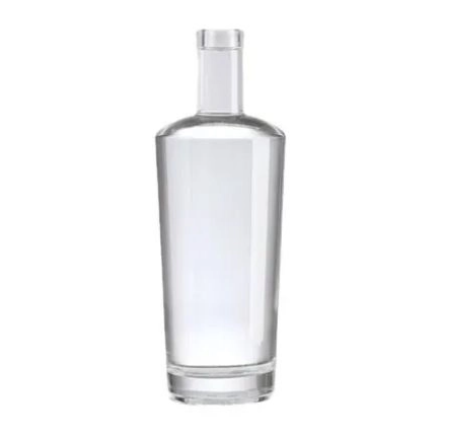

How to Store Whiskey Properly in Glass Bottles
Proper storage is vital to maintaining whiskey’s quality over time. Here are detailed guidelines:
1. Store Whiskey Upright
Unlike wine, whiskey should always be stored upright to prevent the spirit from contacting the cork. Alcohol can degrade cork material, causing it to crumble and potentially contaminate the whiskey.
-
Paupacking’sglass liquor bottlesare designed with secure caps and corks optimized for upright storage.
-
Upright storage also reduces evaporation and leakage risks.
2. Keep Whiskey Away from Direct Sunlight
Sunlight, especially UV rays, can cause photodegradation, breaking down whiskey’s color pigments and flavor compounds.
-
Store bottles in a dark cabinet or box.
-
Use tinted glass bottles from Paupacking to add an extra layer of protection.
-
Avoid placing bottles near windows or bright lights.
3. Maintain a Stable, Cool Temperature
Temperature fluctuations accelerate chemical reactions in whiskey, leading to faster aging and potential spoilage.
-
Ideal storage temperature: 15°C to 21°C (60°F to 70°F).
-
Avoid heat sources like radiators, ovens, or direct sunlight.
-
Avoid freezing temperatures, which can cause the glass to crack or the whiskey to lose flavor.
4. Minimize Air Exposure
Oxygen is the primary factor that degrades whiskey after opening.
-
Always replace the cap or cork tightly after pouring.
-
If the bottle is less than half full, consider transferring whiskey to a smaller Paupackingglass liquor bottleto reduce air volume.
-
Use vacuum pumps or inert gas sprays (e.g., argon) to displace oxygen in the bottle.
5. Handle Corks with Care
Corks can dry out and crumble if not cared for properly, risking contamination.
-
Occasionally rotate the bottle to keep the cork slightly moist.
-
Store bottles upright to avoid prolonged cork contact with whiskey.
-
Replace damaged corks with new ones from Paupacking’s compatible sealing solutions.
How Long Does Whiskey Last in a Glass Bottle?
The shelf life of whiskey depends on whether the bottle is opened or unopened, and how it is stored.
| Bottle Status | Typical Shelf Life | Notes |
|---|---|---|
| Unopened | Indefinite | Store in cool, dark place upright; no flavor changes expected. |
| Opened (Full) | Up to 2 years | Minimal air exposure; tight seal; proper storage conditions. |
| Opened (Half Full or Less) | 6 months to 1 year | Increased oxidation due to air space; consider transfer to smaller bottle. |
How Shelf Life Varies by Whiskey Type
While proper storage helps extend whiskey’s longevity, some varieties respond differently to air exposure and aging:
-
ScotchWhisky:Especially in the single malt category,Scotchholds up well for years, but peated styles (like those fromIslay) are more sensitive. Once a bottle is opened, their distinct smoky notes can diminish faster if exposed to too much air. Always keep the seal tight and air exposure minimal to safeguard these unique flavors.
-
JapaneseWhisky:Crafted for balance and subtlety,Japanesewhiskies are finely tuned in profile and can be more susceptible to changes after opening. They should be stored with extra care—upright, away from light, and with as little headspace as possible—to maintain their delicate character.
-
IrishWhiskey:Typically triple-distilled for smoothness,Irishwhiskey is relatively resilient but will still slowly lose nuance after opening. Blended varieties are especially robust and may retain flavor longer than single malts, though both benefit from consistent, upright storage.
-
Bourbon:Thanks to a higher proof,bourbonis naturally resistant to spoilage, but it isn’t immune to oxidation. After opening, its hallmark caramel and vanilla notes can fade if a bottle is left half-full. To prolong its vibrant flavors, tight sealing and smaller bottles (when needed) are your best friends.
Overall, regardless of origin, minimizing oxygen, light, and temperature swings is key. A few thoughtful steps ensure each type stays enjoyable to the last dram.
Signs That Whiskey Has Gone Bad or Degraded
While whiskey rarely “spoils” in the traditional sense, it can lose its desirable qualities:
-
Off Smell:Sour, musty, or vinegary odors indicate oxidation or cork contamination.
-
Color Changes:Excessive darkening or cloudiness may signal chemical changes.
-
Taste Alterations:Flat, dull, or harsh flavors suggest the whiskey is past its prime.
-
Sediment or Particles:Unusual solids may indicate contamination.
If you detect these signs, it’s best to consume the whiskey soon or use it for cooking.


Paupacking’s Glass Liquor Bottles: The Ideal Choice for Whiskey Storage
Premium Quality and Design
Paupacking’sglass liquor bottlesare crafted with the highest standards:
-
Superior Glass:Crystal-clear, durable, and resistant to thermal shock.
-
Elegant Appearance:Enhance the aesthetic appeal of your whiskey collection.
-
Functional Sealing:Airtight caps and corks to minimize oxidation and evaporation.
-
Variety of Sizes:From small sample bottles to large format decanters.
-
Customization Options:Labels, embossing, and shapes tailored to your brand or personal style.
Sustainability and Reusability
Glass is 100% recyclable and reusable, making Paupacking’s bottles an environmentally responsible choice.
Tips for Whiskey Collectors and Long-Term Storage
For collectors who want to preserve rare or vintage whiskey bottles:
-
Temperature and Humidity Control:Use a dedicated whiskey cellar or wine fridge.
-
Protect Labels:Use protective sleeves or boxes to prevent damage.
-
Limit Opening Frequency:Oxidation accelerates with each opening.
-
Monitor Fill Levels:Track evaporation and top up if possible with the same whiskey.
-
Use Protective Caps:Additional seals reduce evaporation risk.
Frequently Asked Questions (FAQs)
Can whiskey go bad in the glass bottle?
Unopened whiskey in a sealed glass bottle can last indefinitely if stored properly. Opened bottles can change flavor over time due to oxidation but rarely spoil in a harmful way.
Does the type of glass bottle affect whiskey quality?
Yes. High-quality, airtight, and UV-protected glass bottles like those from Paupacking help preserve whiskey flavor and prevent degradation.
How should I store an opened bottle of whiskey?
Store upright, tightly sealed, in a cool, dark place with minimal temperature fluctuations. Consider transferring whiskey to a smaller bottle if less than half full.
Can I reuse glass liquor bottles?
Absolutely. Paupacking’s glass liquor bottles are designed for reuse and recycling, making them sustainable and cost-effective.
Summary Table: Whiskey Storage Best Practices
| Factor | Recommendation | Reason |
|---|---|---|
| Bottle Position | Store upright | Prevent cork deterioration |
| Light Exposure | Store in dark place or use tinted bottles | Protect from UV damage |
| Temperature | Maintain 15°C - 21°C (60°F - 70°F) | Avoid flavor degradation |
| Air Exposure | Seal tightly; transfer to smaller bottle if needed | Slow oxidation |
| Cork Care | Keep cork moist by occasional rotation | Prevent cork from drying and crumbling |
| Bottle Type | Use premium Paupackingglass liquor bottle | Superior protection and presentation |
Conclusion
Whiskey does not spoil in the traditional sense when stored in a high-qualityglass liquor bottle, but its flavor and aroma can change over time, especially after opening. Proper storage—upright positioning, cool and dark environment, airtight seals, and minimal air exposure—is essential to preserving your whiskey’s character.
Paupacking’s elegant and durable glass liquor bottles provide the perfect solution for whiskey lovers who want to protect and showcase their spirits. Explore our premium collection today to elevate your whiskey storage experience and keep your bottles tasting their best for years to come.
For more information and to browse our full range ofglass liquor bottles, visit Paupacking’s website. Preserve your whiskey with style, confidence, and sustainability using Paupacking’s trusted packaging solutions.





